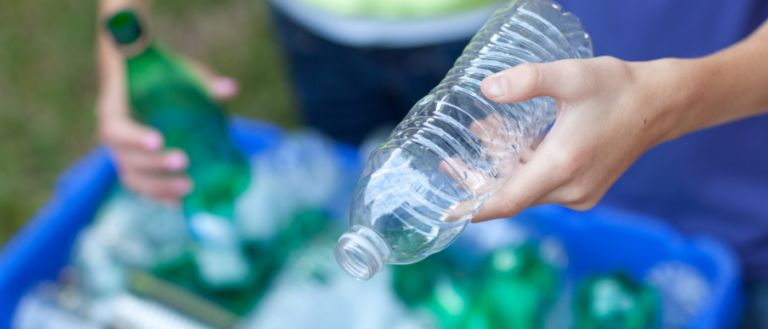It’s widely known that recycling benefits the environment by reducing unnecessary waste. But when people “wish-cycle”—or try to recycle items that aren’t, in fact, recyclable—the system faces hurdles.
With October being Campus Sustainability Month, The Daily spoke with Stephanie Corbett, director of the Office of Energy and Sustainability at Case Western Reserve University, to learn some common misconceptions about recycling.
Read on to learn Corbett’s take on common misconceptions and proper ways to recycle on campus (and beyond).
Misconception 1: Recycling is the same everywhere.
While typical recyclables—including aluminum cups and cans, cardboard, paper and boxes—are generally accepted across Northeast Ohio, recycling rules for items such as tires, Christmas trees, signs and medication bottles vary depending on where you live. To learn how (and where) to donate specific items throughout Cleveland and its surrounding areas, visit the Cuyahoga County Solid Waste District website.
Misconception 2: All plastics can be recycled together.
The wrong types of plastics are often found in recycling bins across campus, such as yogurt and to-go food containers. The Cuyahoga County Solid Waste District encourages people to only recycle emptied bottles (i.e., drink, shampoo and conditioner, condiment and soap) and jugs (i.e., dish and laundry detergent) within these bins. The Office of Energy and Sustainability also recommends keeping caps on bottles, especially if there is liquid residue.
Misconception 3: Recyclables can be put in plastic bags.
Typically, plastic bags aren’t processed at recycling centers as they tend to jam processing machines, so it’s better to put your intended recycled items in your curbside bin loosely. Produce bags, shipping envelopes, bread bags, drink case wraps, bubble wrap, ziploc bags and other film plastics can be recycled at nearby retail locations such as Giant Eagle and Target.
Misconception 4: Primarily, glass needs to be thrown away.
After properly rinsing and drying your jars or bottles, you can recycle these items on campus in the same bins as metals and paper with the lid on to prevent breakage. If you live off campus, some residential curbside programs no longer accept glass for recycling, so be sure to check your city’s specific instructions. Whether you live on or off campus, do not include kitchen dishware, candle jars, drinking glasses, lightbulbs, ceramics, lab equipment and similar items. For broken glass, be sure to contain it in a bag (or box) and place it in the regular trash.
Misconception 5: Broken electronic items can’t be recycled.
Recycling electronics (e-waste) helps prevent harmful emissions from releasing into the atmosphere and through Case Western Reserve University’s partnership with RET3, you can recycle working or broken electronic devices from monitors, computers and cellphones to printers, copiers and digital cameras. Small e-waste items can generally be brought to Wade and Fribley Commons, or REScycle boxes, which are available at the end of each semester during move out.
To learn more about recycling at Case Western Reserve, visit the Office of Energy and Sustainability website.

